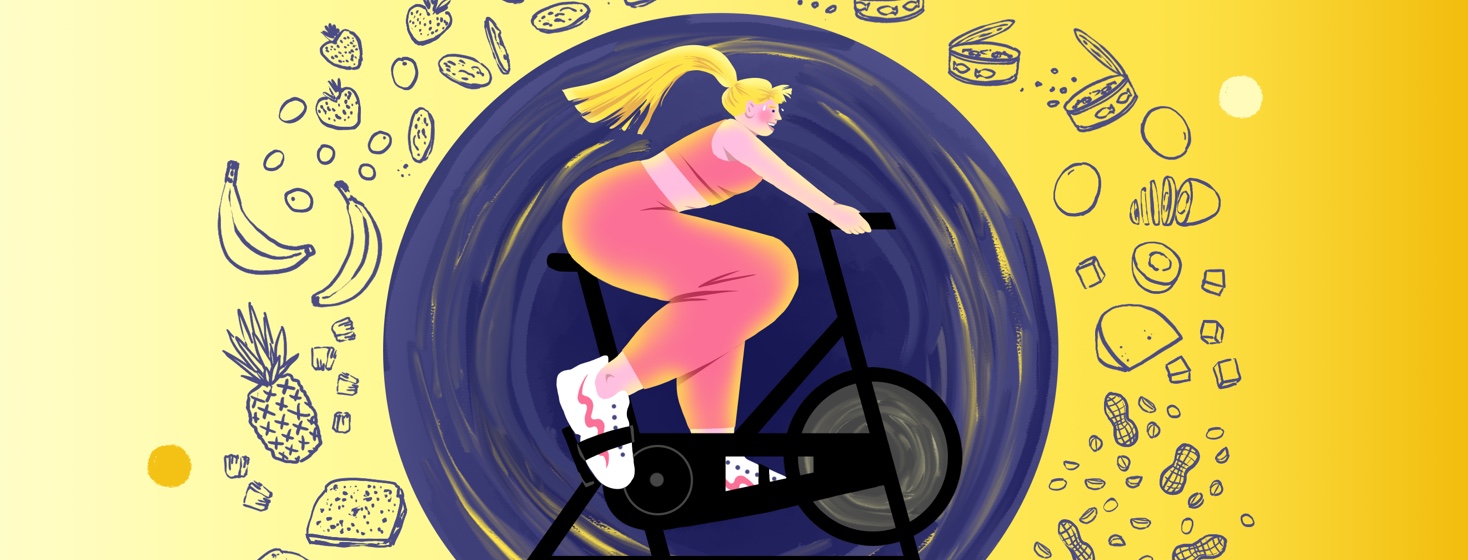Fueling for Fitness with IBS
Did you know poor nutrition is associated with decreased sports performance and increased risk of injury? There’s no doubt that nutrition is key for active lifestyles. However, it can feel especially tricky to navigate the world of sports nutrition with the added stress of irritable bowel syndrome.
Today I want to talk about how we can fuel our bodies for fitness and activity, while also consuming foods that work for IBS. In particular, we’ll review which types of foods to eat before and after fitness for the best performance, recovery, and growth. All examples given below are also FODMAP-friendly for anyone following the low FODMAP diet for IBS.
Food before a fitness routine
Timing of meals & snacks
Let’s start by talking about how to fuel your body before heading off to the gym, court, or arena. Whatever your fitness preference, it is important to have something to eat that will give you the energy needed to perform at your best.
Some people find eating right before fitness bothers their stomach, leaving them queasy, bloated, or uncomfortable! This can be especially true when you have pre-existing digestive symptoms as a result of your IBS. Make your pre-workout meal or snack AT LEAST 1 hour before you plan on getting active. This allows some time for the food to move through your stomach and start digesting.
That being said, you also shouldn’t have more than 4 hours between eating and working out. If you wait too long after eating, you won’t have much left in the tank. Ultimately, you’ll likely feel lethargic and won’t perform as well.
Types of meals & snacks
While timing is important, we also want to choose the best types of food as a pre-workout meal or snack. In particular, carbohydrates are great before you get active. Carbohydrates are a source of fuel that our bodies can use immediately when we start our workout. The simpler the carbohydrate (meaning less fiber), the easier it is for our bodies to use. Some great examples of carbohydrate-rich foods include:
- Banana
- Strawberries
- Grapes
- Pineapple
- Low FODMAP toast (our favourite is traditional sourdough)
- Rice crackers and rice cakes
At the end of the day, the most important things to remember about pre-workout nutrition is to eat something! Keep it fairly light if you’re working out soon, but remember - a small ‘quick-burning’ snack is better than no snack at all!
Food after your fitness routine
After you finish up at the gym, the emphasis shifts to protein. Although carbohydrates are still important to replenish our energy stores, we want to have something with lots of protein after getting active.
Protein
Protein is so important for recovery because protein is actually the building block of muscle. Essentially, our muscles “tear-down” when we exercise, meaning we need to rebuild with protein for proper healing and growth. Getting enough protein means stronger muscles and less muscle soreness – definitely a win!
Timing
Timing is also important after your workout. Aim to eat something high protein, paired with carbohydrate within 60 minutes to ensure your muscles can repair and rebuild effectively. Depending on your workout schedule, this may be a meal with meat, chicken, fish or firm tofu. Or perhaps it could be a snack with hard-boiled eggs, low FODMAP protein powder, hard cheese, peanut butter, a can of tuna or lactose-free yogurt. Pair these foods with your favorite carbohydrate foods for a speedy recovery – who doesn’t love rice cakes with peanut butter? So easy!
How much protein?
I often get asked how much protein you should eat after your workout. Unfortunately, that answer isn’t always an easy one! The amount will depend on the type and duration of activity you do, as well as other meals and snacks you have eaten that day. A dietitian can help you with personalized recommendations that fit with your favorite fitness routine as well as foods that will work for your specific IBS symptoms.
Getting started
If you do your workout before or after work, pack something specifically for your workout in your bag. Try keeping a can of tuna or some peanuts in your bag. The reality is sometimes you can’t make it home or back to the office in time to prepare a high protein meal after your workout. Being prepared is the first step!

Join the conversation